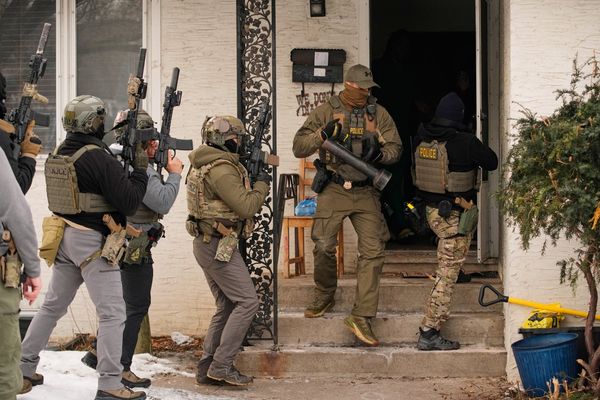
The Supreme Court has dismissed a lawsuit from a number of congressional Democrats who were attempting to get information about the government lease for the Washington DC hotel previously owned by former President Donald Trump.
The court decided to dismiss the suit after the legislators voluntarily dropped the case earlier in June in federal district court. The justices had agreed to hear a bid by the Biden administration to block the suit.
The case was first initiated in 2017 – Mr Trump’s first year in office – when 17 Democrats on the House Oversight and Reform Committee sued the General Services Administration (GSA) for information about the 2013 lease of the Old Post Office building to Mr Trump’s company to make it into a hotel.
The court threw out a ruling from a federal appeals court that let the lawsuit proceed. The Monday ruling from the top US court had been sought by the Justice Department under President Joe Biden. The administration had been concerned that if the appeals court ruling had been allowed to stand, it could prompt a barrage of lawsuits from individual members of Congress against the administration.
The legislators filed the lawsuit after the Trump administration refused to hand over information about the Trump Organization’s lease on the building, located between the White House and the US Capitol on Pennsylvania Avenue near the National Mall in Washington DC.
The Trump family is no longer the owner of the hotel, which has been transformed into a Waldorf Astoria, and large parts of the information the lawmakers wanted have been provided, the AP noted.
The release of internal legal opinions was the only issue up for debate. The Supreme Court entered the case in May after the Department of Justice argued that the appeals court ruling needed to be removed from the books to avoid similar lawsuits in the future.
While members of Congress usually are unable to go to federal court as individuals or in smaller groups, a 95-year-old law allows any seven members of the House Oversight Committee or five senators on the Senate Oversight panel to request some information from federal agencies.
Disagreements have usually been resolved in negotiations, but the use of the law enforcement option when discussions fail has never been fully outlined.
The law was put in place in 1928, and since then lawmakers have only utilised it twice to sue, with similar outcomes as the cases ended without any major rulings.







